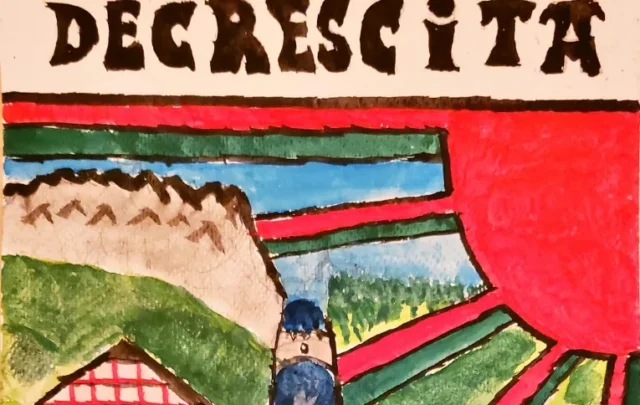Ed. note: We published Frank’s initial blog post on this topic on Resilience.org here.
This week’s podcast epsiode, the Failure of Permaculture, has created a lot of debate and some controversy.
A first point is expressed in the below quote from @ajtarnas.
“The podcast doesn’t include any case studies of permaculture or agroforestry projects failing, it shows cases of small farmers (two of whom were hobby farmers) failing. Bren Smith would definitely qualify as a perennial polyculturalist, but he doesn’t mention it at all”
True but the point is still illustrated by the case studies I provided: homestead to small commercial scale agricultural production is a huge financial challenge. Can it be done profitably? Sure, people do it, but permaculture is chronically capital starved. Why? Bren might not mention permaculture, but he is practicing it. And I’m sure he works with others who practice it too. And they are all struggling. We could find plenty of cases of permaculture farms who face the same constraints as the hobby farmers.
And again I come back to my central (but evolving) thesis: permaculture is failing because we are only practicing one part of it effectively. Yes, we have got down pretty good the polycultures, the soil biology, the high density grazing, and the seed production. Not across the board, and there’s a lot of scaling up to be done, but we have good replicable models for working with agroecological production systems.
But our understanding of economics is poor. Let us take the time to define an economy of scale. According to Wikipedia:
economies of scale are the cost advantages that enterprises obtain due to size, output, or scale of operation, with cost per unit of output generally decreasing with increasing scale as fixed costs are spread out over more units of output.
Economic models of economies of scale are supported by many years of data, the laws of the physical world, and common sense. The graph below illustrates the point, as enterprise size increases, average cost per unit decreases coupled with a commensurate increase in productivity and volume.
As quantity of production increases from Q to Q2, the average cost of each unit decreases from C to C1. Image courtesy Wikpedia
As economies of scale are achieved, the enterprise benefits from many of the other advantages of size:
- An increasingly specialized workforce, which in the case of permaculture is critical considering the broad range of expertise required
- Improved negotiating power with buyers and sellers
- Access to large volume purchase and sales contracts with other complementary enterprises, and therefore more favorable product prices
And then this comment from the thread on reddit:
“Of course, the ‘small permaculture farm’ model is economically less efficient than big agro-industrial farms, less adapated to today’s financialized economy.”
My counterpoint is that we’ve done this to ourselves. Nobody’s fault but ours. Who said permaculture farms have to all be small? We have not fully understood that Bill Mollison had a view of permaculture that included finance and economics, and we have mostly ignored that to our peril. If we that were not the case, we would see hundreds, if not thousands of large permaculture enterprises creating employment and regenerating degraded landscapes by understanding and leveraging optimized economies of scale.
And here another quote, again from the reddit thread:
Don’t you think that the issue is not permaculture having an economy of scale, but that the current market created by subsidy and a permissive attitude towards externalities creates an environment in which only very specific approaches to farming are economically viable?
Yes, I do think that the regulatory environment makes permaculture difficult indeed, but if we were creative permaculture designers we would design our way out of this problem. Like I said, economies of scale are basically a law of nature; as a rule, we are not incorporating this in our permaculture designs. We are supposed to be observers of our world, and model our permaculture accordingly. If we want to produce more, access more land, become a bigger economic and political player, then we have to implement some form of economies of scale. Even if you personally, reader, are not interested in participating in such an endeavor, I would hope that you still support the concept as an essential part of a permaculture grand strategy.






